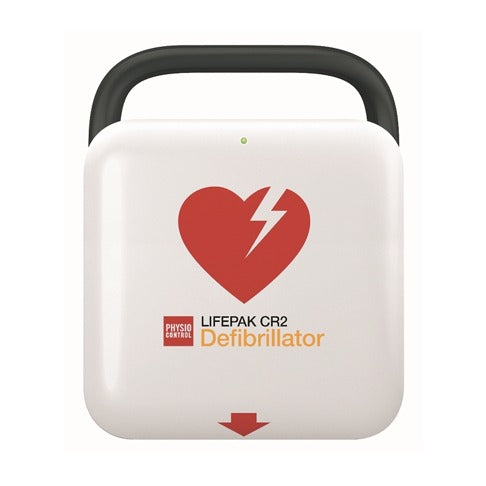Are AEDs Really Necessary?
Canada's wine industry has flourished over the past decades, with vineyards and wineries becoming popular destinations for tourists, wine enthusiasts, and event hosts. From intimate tastings to large wedding celebrations, wineries attract diverse crowds throughout the year. However, with increased foot traffic comes increased responsibility for guest safety. One critical safety measure that every Canadian winery should consider is installing an automated external defibrillator (AED).
The Reality of Cardiac Emergencies at Wineries
Cardiac emergencies can strike anyone, anywhere, at any time. Wineries present unique circumstances that may increase the risk of cardiac events. The combination of alcohol consumption, physical activity (such as walking vineyard tours), emotional excitement, and often remote locations creates an environment where having immediate access to life-saving equipment becomes crucial.
Consider the typical winery visitor: they may be middle-aged or older, potentially with underlying health conditions, enjoying wine tastings in a relaxed but sometimes physically demanding environment. Wedding parties, corporate events, and festivals can add stress and excitement that may trigger cardiac episodes in vulnerable individuals.
Are AEDs Really Necessary? The Statistics Don't Lie
The question of whether AEDs are truly necessary is answered definitively by medical statistics. In Canada, approximately 50,000 people experience cardiac arrest outside of hospitals each year. Without immediate intervention, the survival rate drops by 7-10% for every minute that passes without defibrillation.
When an AED is used within the first few minutes of cardiac arrest, survival rates can increase to 70% or higher. This dramatic difference makes the presence of an AED machine in Canada's wineries not just beneficial, but potentially life-saving.
Understanding the Canadian Good Samaritan Law
One concern that prevents some businesses from investing in AEDs is the fear of liability. However, the Canadian Good Samaritan Law provides important protections for those who act in good faith during emergency situations. This legislation encourages bystanders to provide assistance without fear of legal repercussions, provided they act reasonably and within their level of training.
The Canadian Good Samaritan Law specifically protects individuals who use AEDs in emergency situations, recognizing that these devices are designed to be used by laypersons and that immediate action can mean the difference between life and death. This legal protection extends to business owners who provide AED access on their premises and train their staff in basic emergency response.
The Real Cost of AED Machines in Canada
Many winery owners assume that the automated external defibrillator price is prohibitively expensive, but this couldn't be further from the truth. When you examine the actual defibrillator price in today's market, AEDs have become increasingly affordable and accessible.
The automatic defibrillator cost varies depending on the model and features, but most quality AED machines in Canada range from $2,200 to $2,500. When you consider that this represents a one-time investment that could save multiple lives over the device's 8-10 year lifespan, the aed defibrillator cost becomes remarkably reasonable.
Breaking down the price of an AED further, many models come with comprehensive packages that include the device, carrying case, adult and pediatric electrode pads, batteries, and basic training materials. Some suppliers even offer financing options that make the monthly cost equivalent to a premium wine bottle.
Factors Affecting Defib Prices
Several factors influence defib prices in the Canadian market:
Device Features: Basic models suitable for most wineries cost less than advanced units with additional monitoring capabilities. Most wineries need reliable, user-friendly devices rather than hospital-grade equipment.
Brand and Warranty: Established manufacturers often command higher prices but provide better warranties and support services. The peace of mind that comes with a reputable brand often justifies the additional cost.
Training and Support: Some suppliers include comprehensive training packages, ongoing support, and maintenance services in their pricing, which adds value to the overall investment.
Volume Discounts: Wineries that are part of larger organizations or wine associations may qualify for group purchasing discounts that significantly reduce per-unit costs.
Why AED.ca is Canada's Premier Choice
When researching AED machine Canada options, AED.ca stands out as the leading provider for several compelling reasons. This Canadian company specializes exclusively in AED sales, service, and support, making them uniquely qualified to serve the country's diverse business needs.
AED.ca offers comprehensive solutions that go beyond just selling devices. Their services include on-site training for winery staff, ongoing maintenance support, and replacement supplies. They understand Canadian regulations and can help wineries ensure compliance with local health and safety requirements.
The company's commitment to customer education sets them apart. They provide detailed guidance on proper AED placement, maintenance schedules, and staff training protocols. This support is particularly valuable for wineries, where staff may turn over seasonally and ongoing training becomes essential.
AED.ca also maintains strong relationships with leading AED manufacturers, ensuring access to the latest technology at competitive prices. Their Canadian focus means they understand the unique challenges faced by businesses in different provinces and can provide tailored solutions.
Implementation Strategy for Wineries
Installing an AED is more than just purchasing equipment. Successful implementation requires careful planning and ongoing commitment. Start by conducting a risk assessment of your property, identifying high-traffic areas and locations that might be furthest from emergency services.
Consider factors such as the layout of your facility, typical crowd sizes, and the demographics of your visitors. Wedding venues might need different considerations than tasting rooms, and outdoor festival spaces require different planning than indoor facilities.
Staff training is crucial for effective AED implementation. While these devices are designed for use by untrained individuals, having staff members who are comfortable with the equipment and emergency procedures significantly improves response times and outcomes.
The Business Case Beyond Safety
While saving lives is the primary motivation for AED installation, there are also business benefits to consider. Having an AED demonstrates your commitment to guest safety, which can be a powerful marketing differentiator in the competitive hospitality industry.
Insurance companies may offer premium reductions for businesses that implement comprehensive safety measures, including AED programs. The potential savings on liability insurance could offset a significant portion of the initial investment.
Additionally, many corporate clients and event planners now specifically look for venues with comprehensive safety equipment. Having an AED on-site can be a deciding factor for large events, weddings, and corporate functions.
Maintenance and Ongoing Costs
Modern AED machines require minimal maintenance, but understanding ongoing costs is important for budgeting. Most devices perform automatic self-tests and will alert you to any issues. Electrode pads typically need replacement every 2-4 years, and batteries last 4-7 years depending on the model.
Annual maintenance costs are generally under $200, making the ongoing investment very manageable. Some suppliers offer maintenance packages that include replacement supplies and regular inspections, providing predictable annual costs.
Making the Decision
The question "Are AEDs really necessary?" becomes much clearer when you consider the combination of increased cardiac emergency risks at wineries, the proven effectiveness of early defibrillation, protection under the Canadian Good Samaritan Law, and the reasonable cost of modern AED machines.
For Canadian wineries, the decision to install an AED should be viewed as an essential safety investment rather than an optional expense. The relatively modest automatic defibrillator cost, combined with the potential to save lives and protect your business, makes this decision straightforward.
Recommended AED for Wineries
Physio-Control CR2 AED
Reasons why recommend:
-
Ability to switch between adult and child rescue at the press of a button - only one set of pads needed
-
Pads & Batteries both last for your years
-
Fully Bilingual
- Highly resistant to dust and moisture and has an ingress protection (IP) rating of 55. This is among the highest in the industry.

For more information go to:
https://aed.ca/products/stryker-physio-cr2-semi-auto-english-wifi
Taking Action
If you're ready to enhance your winery's safety preparedness, start by contacting AED.ca for a consultation. They can help you assess your specific needs, recommend appropriate equipment, and develop a comprehensive implementation plan.
Remember that the price of an AED pales in comparison to the value of a human life. In the wine industry, where creating memorable experiences is paramount, ensuring those experiences don't end in tragedy is an investment that pays dividends in peace of mind, legal protection, and business reputation.
The question isn't whether you can afford to install an AED at your winery – it's whether you can afford not to. Contact AED.ca today to learn more about protecting your guests, your staff, and your business with professional-grade defibrillation equipment designed for Canadian conditions and regulations.






